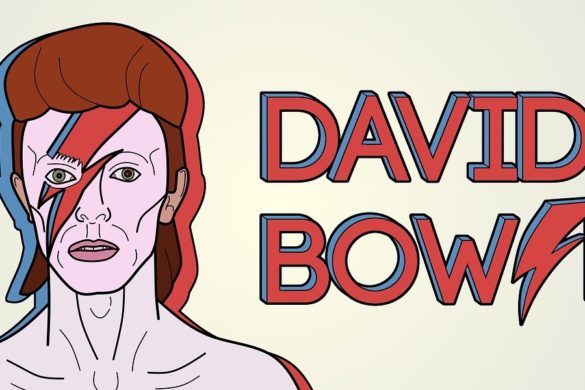English version below!
Dans mon article précédent, je discute de la manière dont le personnage de Tracy est construit, correspondant parfaitement aux désirs de Ted. Tracy devient sa partenaire ultime, puisqu’elle remplit ses critères, qu’elle partage son humour, qu’elle créée en quelques minutes des relations de confiance avec ses ami.e.s… C’est une sorte de catharsis, puisque le public l’attend déjà depuis huit saisons, impatiemment !
Mais Tracy meurt, pour faire place, une ultime fois, à Robin. La mort de Tracy a pour fonction de libérer Ted et de le transfigurer en charactère absolument moral. Il a rencontré l’amour, le vrai. Il a pris des décisions peu morales, certes, mais ça c’était avant. Avant le vrai amour, le grand amour, celui avec lequel on ne plaisante pas ! Il faut donc qu’elle meurt, qu’il fasse le deuil pendant six années, puis qu’il raconte toute l’histoire de son amour pour Robin pour que ses enfants, maintenant jeunes adultes, le libèrent de sa culpabilité et l’encourage à tendre la main à Robin à nouveau.
Une relation entre les deux n’était pas envisageable à long terme, parce que Robin avait besoin de voyager au gré de son métier de reporter, et Ted voulait avoir des enfants, au contraire de Robin. Mais maintenant, après la mort de Tracy, c’est chose faite ! Robin a été reporter en Amérique du Sud, au Japon ; Ted a deux enfants qu’il a élevé avec Tracy : ces obstacles n’ont plus lieu d’être. Oh, et il en va de même pour le mariage entre Robin et Barney. Illes ont essayé une seconde fois, et se sont rendu compte comme des adultes responsables que cela ne leur convenait pas (ce qui contredit le développement minutieux de leur relation, mais permet une fois encore d’éclaircir la route entre Robin et Ted).
L’obsession romantique
Cette fin rappelle le pacte scellé entre Robin et Ted, selon lequel les deux se marieraient, s’illes sont toujours célibs à 40 ans. Mais par-dessus tout, cette fin représente un fil rouge tressé tout au long de la trame dramaturgique de la série. Un fil rouge bien vif, bien insistant. Une idée fixe, presque, une espèce d’obsession malsaine… Car tout au long de la série, qu’importe les relations qui les lient avec d’autres personnages, Ted et Robin se croisent sans arrêt – mais pas sans dommage.
Le narratif de How I Met Your Mother est une forme en arche. Ted rencontre Robin, et « sait » qu’il veut se marier avec elle. C’est une comédie, donc la première remarque à ce sujet vient de Barney, qui souligne à quel point elle aime le sexe bestial. A la fin du pilote, il tente de la retrouver, volant le cor bleu qui trônait au-dessus de leur table au restaurant. A terme, après 9 saisons, il la rejoint, avec une fois de plus ce cor bleu à la main. Entre temps, nombres de péripéties, puisqu’il n’y aurait aucune histoire si les deux pouvaient simplement communiquer leurs besoins et convenir d’un compromis.
Le cor bleu, d’ailleurs, est pour moi la matérialisation de cette obsession des narrateurs avec Ted et Robin. Il le vole à plusieurs reprises ; il engage un quartet pour lui déclarer sa flamme – un quartet avec des instruments peints dans le même bleu. Alors qu’illes se disputent, vers leur première séparation, elle commente « tu as volé un cor bleu pour moi », ce à quoi il répond « je t’aurais volé un orchestre entier ». Ce cor bleu est cité par les autres personnages comme la démonstration, que dis-je, la performance romantique ultime !
Quand le romantisme masque les relations abusives
Mais le fait est que leur relation est dysfonctionnelle. Cette obsession est malsaine. Les deux interfèrent énormément avec les relations de l’autre – lorsque Robin se rend au mariage de Ted et Stella, et lui conseille de ne pas se marier avec elle ; lorsque Ted et Barney boivent et se rendent à l’appartement de Don pour l’y retrouver avec Robin, et se battent comme des enfants pour la gagner ; lorsque Ted investit des efforts extraordinaires pour retrouver le collier que Robin a perdu, et qui est sensé signifier qu’elle est prête à épouser. Lorsque Ted le lui ramène, mentant à propos de l’avoir retrouvé et attribuant le crédit à Barney, elle lui indique qu’elle sait que seul lui peut l’avoir retrouvé, et se demande si elle ne fait pas le mauvais choix.
On se souviendra également du discours que Ted tient à Janet alors qu’elle s’apprête à jeter ce collier dans un plan d’eau de Central Park : « Je suis amoureux d’elle, d’accord ? Si tu cherches le mot qui signifie se soucier de quelqu’un au-delà de toute rationalité, et vouloir qu’il ait tout ce qu’il veut, peu importe à quel point cela te détruit, c’est de l’amour. Et quand on aime quelqu’un, on ne s’arrête pas. Jamais. »
Quand la culture du viol se cache dans nos séries préférées
Discutons une seconde de ces valeurs. La définition que Ted a de l’amour l’amène d’une part à l’auto-négligence : ses besoins personnels à un moment ou à un autre peuvent entrer en conflit avec ceux de l’autre. Selon sa définition, il ignore complètement ses propres besoins au profit de ceux de Robin, acceptant la violence qu’il s’inflige à lui-même. D’autre part, cette définition comprend une obstination (une obsession ? une idée fixe ?) envers l’objet de son désir. Ted vit complètement ce second aspect de sa définition : il poursuit Robin sans arrêt, inlassablement. C’en est presque insupportable.
Ted, c’est l’homme blanc hétéro qui ne supporte pas qu’on lui dise non. Il n’y a pas de « non » pour lui, il n’y a que ce que la culture du viol lui a appris : que « non » signifie juste « pas encore », et qu’il faut s’y accrocher, qu’il faut essayer encore et encore, et qu’éventuellement, le héros sera récompensé pour sa bravoure et son insistance par le prix ultime, la Fâmme. Ce narratif toxique est omniprésent dans notre culture, il n’est pas unique à How I Met Your Mother. Mais Ted se conduit selon ce principe. L’espoir meurt en dernier, comme on dit en Allemand.
Et enfin, je ne peux me retenir de commenter sur le fait que Ted se contredit dans sa définition : s’il tient à ce point à Robin qu’il tient à ce qu’elle ait tout ce qu’elle veut, cela implique aussi qu’il doive lui permettre de vivre ses expériences amoureuses, et sa vie, sans être omniprésent, détruisant son bonheur en s’intercalant sans arrêt entre elle et ses relations. Mais ça demande un peu plus de maturité émotionnelle que cette déplorable définition de l’amour, et je crains que ni Ted, ni notre culture populaire, ne soit mûrs pour ça…
English version
The construction of perfect love in How I Met Your Mother – part 2
In my previous article, I discuss how the character of Tracy is constructed, corresponding perfectly to Ted’s desires. Tracy becomes his ultimate partner, since she fulfills his criteria, shares his humour, creates in a few minutes trusting relationships with his friends… It’s a kind of catharsis, since the audience has already been waiting for her for eight seasons, impatiently!
But Tracy dies, to give space, one last time, to Robin. Tracy’s death has the function to free Ted and to transfigure him into an absolutely moral character. He has met love, the real one. He made some unethical decisions, yes, but that was before. Before true love, the kind you don’t mess with! It is thus necessary that she dies, that he mourns for six years, then tells all the history of his love for Robin so that his children, now young adults, release him from his guilt and encourage him to reach out to Robin again.
A relationship between the two was not conceivable in the long run, because Robin needed to travel as a reporter, and Ted wanted to have children, contrary to Robin. But now, after Tracy’s death, it is done ! Robin was a reporter in South America, in Japan; Ted has two children that he raised with Tracy : these obstacles are not any longer relevant. Oh, and the same goes for Robin and Barney’s marriage. They tried a second time, and realized as responsible adults that it was not convenient for them (which contradicts the meticulous development of their relation, but allows once again to clear the road between Robin and Ted).
The romantic obsession
This ending reminds us of the pact between Robin and Ted, according to which the two would get married, would they still be single with 40. But above all, this ending represents a red thread woven throughout the dramaturgical plot of the series. A bright, insistent red thread. A idée fixe, almost, a kind of unhealthy obsession … Because throughout the series, regardless of the relationships that bind them with other characters, Ted and Robin cross paths without rest – but not without damage.
The narrative of How I Met Your Mother is an arch form. Ted meets Robin, and « knows » that he wants to marry her. It’s a comedy, so the first comment about it comes from Barney, who emphasizes how much she loves it dirty. At the end of the pilot, Ted tries to meet Robin again, stealing the blue French horn that was enthroned above their table at the restaurant. Eventually, after 9 seasons, he joins her, once again with this blue French horn in his hand. In the meantime, many twists and turns, since there would be no story if the two could simply communicate their needs and agree on a compromise.
The blue French horn, by the way, is for me the materialization of the narrator’s obsession with Ted and Robin. He steals it several times; he hires a string quartet to declare his love for her – a quartet with instruments painted in the same blue. As they argue, towards their first separation, she comments « you stole a blue French horn for me », to which he replies « I would have stolen a whole orchestra from you ». This blue French horn is cited by the other characters as the ultimate romantic demonstration, what am I saying, the performance, even!
When romance masks abusive relationships
But the fact is, their relationship is dysfunctional. This obsession is unhealthy. The two interfere enormously with each other’s relationships – when Robin goes to Ted and Stella’s wedding, and advises her not to marry Stella; when Ted and Barney drink and go to Don’s apartment to meet him and Robin there, and fight like children to win her over; when Ted goes to extraordinary lengths to find the necklace that Robin has lost, and which is supposed to mean that she is ready to marry. When Ted brings it back to her, lying about finding it and giving credit to Barney, she tells him that she knows that only he could find it, and wonders if she’s making the wrong choice.
We’ll also remember Ted’s speech to Janet as she prepares to throw this necklace into a Central Park pond: « I’m in love with her, okay? If you’re looking for the word that means caring about someone beyond all rationality, and wanting them to have everything they want, no matter how much it destroys you, that’s love. And when you love someone, you don’t stop. You just don’t stop. »
When rape culture hides in our favorite series…
Let’s discuss these values for a second. Ted’s definition of love leads him on the one hand to self-neglect: his personal needs at one time or another may conflict with his partner’s. According to his definition, he completely ignores his own needs in favour of Robin’s, accepting the violence he inflicts on himself. On the other hand, this definition includes an stubbornness (an obsession? a idée fixe?) towards the object of his desire. Ted embodies completely this second aspect of his definition: he pursues Robin unceasingly, tirelessly. It is almost unbearable.
Ted is the straight white man who can’t bear to be told no. There is no « no » for him, there is only what rape culture has taught him: that « no » just means « not yet », and that one must cling to it, and try again and again, and that eventually, the hero will be rewarded for his bravery and his insistence by the ultimate prize, the Woman. This toxic narrative is everywhere in our culture, it is not unique to How I Met Your Mother. But Ted follows this principle with entire trust. Hope dies last, as they say in German.
And finally, I cannot refrain from commenting on the fact that Ted contradicts himself in his definition : if he holds so much to Robin that he wants her to have all she wants, that implies also that he must allow her to live her love experiences, and her life, without being omnipresent, destroying her happiness by interposing himself without interruption between her and her partners. But it requires a little more emotional maturity than this deplorable definition of love, and I’m afraid that neither Ted nor our popular culture is ripe for that…






1 Commentaire
J’en avais lu des merdes, mais celle ci est ultime